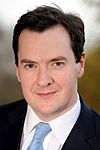National Security Council (United Kingdom)
 |
|
| Committee overview | |
|---|---|
| Formed | 12 May 2010 |
| Committee executives |
|
| Parent department | Cabinet Office |
| Website | www |
The National Security Council (NSC) of the United Kingdom is a Cabinet Committee tasked with overseeing all issues related to national security, intelligence coordination, and defence strategy. The terms of reference of the National Security Council are to consider matters relating to national security, foreign policy, defence, international relations and international development, resilience, energy and resource security.
The NSC was established on 12 May 2010 by Prime Minister David Cameron. The Council will coordinate responses to threats faced by the United Kingdom and integrating at the highest level the work of relevant government entities with respect to national security.[1] The United Kingdom National Security Adviser is secretary to the council.
Contents
Council Membership
As at 3 June 2015, the NSC's members are as follows:[2]
| Image | Officeholder | Office(s) |
|---|---|---|
 |
The Rt Hon. David Cameron MP | Prime Minister (Chair) |
 |
The Rt Hon. George Osborne MP | Chancellor of the Exchequer and First Secretary of State |
 |
The Rt Hon. Philip Hammond MP | Secretary of State for Foreign and Commonwealth Affairs |
 |
The Rt Hon. Michael Fallon MP | Secretary of State for Defence |
 |
The Rt Hon. Theresa May MP | Secretary of State for the Home Department |
 |
The Rt Hon. Justine Greening MP | Secretary of State for International Development |
 |
The Rt Hon. Amber Rudd MP | Secretary of State for Energy and Climate Change |
 |
The Rt Hon. Sajid Javid MP | Secretary of State for Business |
 |
The Rt Hon. Oliver Letwin MP | Chancellor of the Duchy of Lancaster |
 |
The Rt Hon. Jeremy Wright MP | Attorney General |
Other government ministers, senior officials, military and intelligence officers attend as necessary, some on a regular basis. There are two subcommittees of the NSC,[3] Nuclear Deterrence and Security and Threats, Hazards, Resilience and Contingencies. The Leader of the Opposition, has attended on an occasional basis.
Council Subcommittees
Nuclear Deterrence and Security Subcommittee
The Nuclear Deterrence and Security Subcommittee is a restricted attendance subcommittee of the National Security Council with the terms of references to consider issues relating to nuclear deterrence and security.[4]
| Officeholder | Office(s) |
|---|---|
| The Rt Hon. David Cameron MP | Prime Minister (Chair) |
| The Rt Hon. George Osborne MP | Chancellor of the Exchequer |
| The Rt Hon. Philip Hammond MP | Secretary of State for Foreign and Commonwealth Affairs |
| The Rt Hon. Michael Fallon MP | Secretary of State for Defence |
| The Rt Hon. Theresa May MP | Secretary of State for the Home Department |
| The Rt Hon. Amber Rudd MP | Secretary of State for Energy and Climate Change |
| The Rt Hon. Oliver Letwin MP | Chancellor of the Duchy of Lancaster |
Threats, Hazards, Resilience and Contingencies Subcommittee
The Threats, Hazards, Resilience and Contingencies Subcommittee is a subcommittee of the National Security Council with the terms of references to consider issues relating to terrorism and other security threats, hazards, resilience and intelligence policy and the performance and resources of the security and intelligence agencies; and report as necessary to the National Security Council.[4]
When intelligence matters are discussed by the subcommittee there is restricted attendance to Prime Minister (Chair), Deputy Prime Minister (Deputy Chair), Secretary of State for Foreign and Commonwealth Affairs, Chancellor of the Exchequer, Secretary of State for the Home Department, and Secretary of State for Defence.
National Security Secretariat
From July 2010, there were two Deputy National Security Advisers (DNSAs): Julian Miller for Foreign & Defence Policy and Oliver Robbins for Intelligence, Security & Resilience.[5] By March 2013, Hugh Powell - previously a National Security Secretariat Director - had been promoted to a newly created third DNSA position.[6] As of 6 November 2014, the three DNSAs were: Hugh Powell as DNSA (Foreign Policy), Julian Miller as DNSA (Defence, Nuclear and Strategy) and Paddy McGuinness as DNSA (Intelligence, Security & Resilience).[7] As of 10 February 2015, Liane Saunders - previously the National Security Secretariat's Director for Foreign Policy and its Afghanistan/Pakistan Coordinator - was described as an Acting Deputy National Security Adviser (Conflict, Stability and Foreign Policy).[8]
As of early December 2014, the National Security Secretariat was staffed by 180 officials[9] and comprises five directorates: Foreign & Defence Policy; the Civil Contingencies Secretariat; Security & Intelligence; the Office of Cyber Security and Information Assurance, and UK Computer Emergency Response Team (CERT UK).[7]
References
- ↑ Lua error in package.lua at line 80: module 'strict' not found.
- ↑ Lua error in package.lua at line 80: module 'strict' not found.
- ↑ Lua error in package.lua at line 80: module 'strict' not found.
- ↑ 4.0 4.1 [1] UK Cabinet Committees Membership
- ↑ Lua error in package.lua at line 80: module 'strict' not found.[dead link]
- ↑ Lua error in package.lua at line 80: module 'strict' not found.
- ↑ 7.0 7.1 Lua error in package.lua at line 80: module 'strict' not found.
- ↑ Lua error in package.lua at line 80: module 'strict' not found.
- ↑ Lua error in package.lua at line 80: module 'strict' not found.